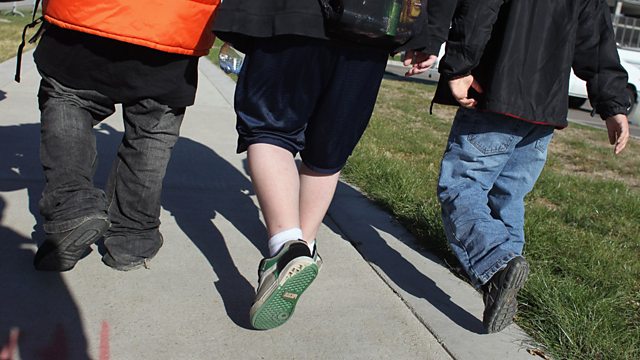Intersex
Germany gives legal recognition for people who do not fit the two genders of male or female. Plus, Rwanda's model healthcare system and eradicating rabies in Latin America.
Intersex people in Germany now have legal recognition. We look at why it’s not possible to accurately determine the sex of one in 2000 newborn babies. Campaigners say a decision on determining the sex of a child should be delayed until the child is older. They welcome the German ruling as giving rights to people who do not readily fit the two genders of male and female.
Rwanda Healthcare
Rwanda’s healthcare system has been heralded as a great success. We speak to health minister Agnes Binagwaho about the system widely seen as a model for others - both in the developing and industrialised world. Life expectancy has increased markedly in the last 20 years and the majority of the population is now covered by health insurance.
Eradicating Rabies
And eradicating rabies in Latin America. In recent years there have been very few cases of rabies transmission from dogs to humans. An effective dog vaccination campaign has reduced cases to a handful. Now medics are hopeful that human cases will disappear completely. The disease is still endemic in wild animal populations, but they say an effective continual vaccination campaign will prevent its spread.
Picture: One in 2000 people can not be easily categorised as male or female. Credit: John Moore/Getty Images
Last on
Chapters
-
Intersex
Sarah Graham tells us of her experience of growing up as an intersex person
Duration: 07:30
Rwandan healthcare
Rwanda’s health minister Agnes Binagwaho
Duration: 12:16
Rabies
Eradicating dog to human rabies transmission in Latin America
Duration: 05:55
Broadcasts
- Wed 6 Nov 2013 20:32GMTÃÛÑ¿´«Ã½ World Service Online
- Thu 7 Nov 2013 02:32GMTÃÛÑ¿´«Ã½ World Service Online
- Thu 7 Nov 2013 09:32GMTÃÛÑ¿´«Ã½ World Service Online
- Sun 10 Nov 2013 05:32GMTÃÛÑ¿´«Ã½ World Service Online
- Mon 11 Nov 2013 01:32GMTÃÛÑ¿´«Ã½ World Service Online
Podcast
-
![]()
Health Check
Health issues and medical breakthroughs from around the world.


